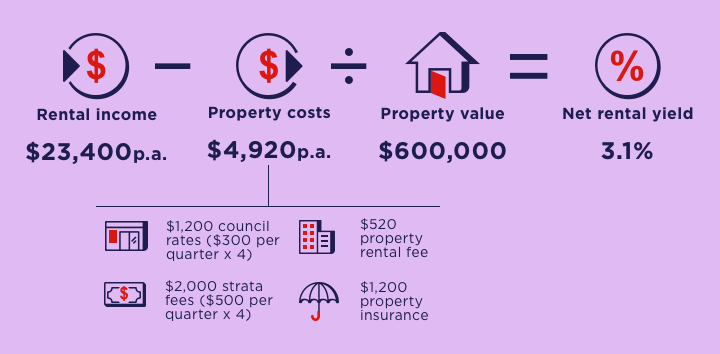
Obtaining a professional home inspector license in Texas requires applicants to complete a variety of educational and experience requirements. At least 21 years of experience must be gained in a relevant field. Applicants must also pass a written examination. The professional home inspector license requires that the applicant has at least 120 hours classroom training and practical experience. These requirements can be found in the Texas Real Estate License Act.
In order to pay the license fee, applicants must also possess a valid bank account and a check. Visa or MasterCard must be used to pay the fee. The fee is not refundable. The $20 fee is payable if there are no checks or credit cards. The license will be held by the Real Estate Inspection Recovery Fund. ATI Training offers classroom and online courses. Flexible scheduling is possible through ATI's online courses. The classes are taught only by licensed instructors. ATI provides a marketing package that includes a website and reports for new business owners. This is a valuable resource that will benefit aspiring inspectors.

Applicants must have at least 120 hours of experience and 100 hours of inspections, and must have completed a total of 250 inspections. A personal experience affidavit must also be submitted. It should detail the nature and duration of the experience. As a guide, a qualified ridealong instructor can be used. On the TREC site, you can find a list of approved ride-along instructor.
If the home inspector has a financial interest in the property or if the payment is contingent on the closing, the inspector must not inspect the home. They cannot inspect homes that have been established as in good condition, nor must they make repairs to sell real estate. The home inspector must provide a written report to the client. They are forbidden from paying referral fees.
To become a professional real estate inspector, individuals must register for courses before March 1, 2021. The course must be completed within one year. A professional inspector must also have at least three consecutive years of experience as a licensed inspector of homes or licensed architect. They must have attained a minimum 12-month record of at least 25 inspections in each of the last two years. They must also be able to show proof that they have liability insurance coverage of at least $100,000 per incident.
The Professional Home Inspection Institute offers a variety of affordable and thorough real estate inspection classes. PHII will provide lifetime access to the resources for all students, and they are eligible for licensure throughout all 40 US states. Unlimited support and unlimited access to the instructor are part of the PHII program. They are available 24/7, seven days a semaine. It is a cost-effective way to get the training and knowledge you need to succeed in the home inspection industry.

ICA's Real Estate Inspection Certification program is a great choice if you are in search of an online training program. This program includes home inspections as well as commercial property inspections. Lead-based paint testing is also covered. The course includes a comprehensive Operational Manual and Marketing Manual, as well as access to unlimited instructor support. Experienced, licensed instructors will teach the course and provide real-life examples and situations to aid students.
FAQ
How much will my home cost?
This can vary greatly depending on many factors like the condition of your house and how long it's been on the market. According to Zillow.com, the average home selling price in the US is $203,000 This
What are the most important aspects of buying a house?
When buying any type or home, the three most important factors are price, location, and size. Location refers to where you want to live. The price refers to the amount you are willing to pay for the property. Size refers to how much space you need.
What flood insurance do I need?
Flood Insurance covers flooding-related damages. Flood insurance can protect your belongings as well as your mortgage payments. Learn more information about flood insurance.
How can I find out if my house sells for a fair price?
If you have an asking price that's too low, it could be because your home isn't priced correctly. If your asking price is significantly below the market value, there might not be enough interest. To learn more about current market conditions, you can download our free Home Value Report.
Should I rent or buy a condominium?
If you plan to stay in your condo for only a short period of time, renting might be a good option. Renting can help you avoid monthly maintenance fees. You can also buy a condo to own the unit. You can use the space as you see fit.
What is a "reverse mortgage"?
Reverse mortgages allow you to borrow money without having to place any equity in your property. It works by allowing you to draw down funds from your home equity while still living there. There are two types: conventional and government-insured (FHA). You must repay the amount borrowed and pay an origination fee for a conventional reverse loan. If you choose FHA insurance, the repayment is covered by the federal government.
Statistics
- Private mortgage insurance may be required for conventional loans when the borrower puts less than 20% down.4 FHA loans are mortgage loans issued by private lenders and backed by the federal government. (investopedia.com)
- It's possible to get approved for an FHA loan with a credit score as low as 580 and a down payment of 3.5% or a credit score as low as 500 and a 10% down payment.5 Specialty mortgage loans are loans that don't fit into the conventional or FHA loan categories. (investopedia.com)
- Over the past year, mortgage rates have hovered between 3.9 and 4.5 percent—a less significant increase. (fortunebuilders.com)
- The FHA sets its desirable debt-to-income ratio at 43%. (fortunebuilders.com)
- Based on your credit scores and other financial details, your lender offers you a 3.5% interest rate on loan. (investopedia.com)
External Links
How To
How to become a real estate broker
The first step in becoming a real estate agent is to attend an introductory course where you learn everything there is to know about the industry.
Next, you will need to pass a qualifying exam which tests your knowledge about the subject. This requires you to study for at least two hours per day for a period of three months.
After passing the exam, you can take the final one. To be a licensed real estate agent, you must achieve a minimum score of 80%.
If you pass all these exams, then you are now qualified to start working as a real estate agent!